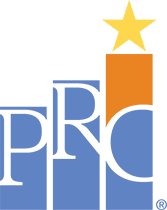Every year I look forward to attending the American Society for Health Care Human Resource Administration (ASHHRA) conference. This year, the theme was “Connect, Innovate, and Transform” healthcare. There was one session that really stood out to me as exuding the challenging theme of looking at healthcare differently. Nicole Candler and Trasee Whitaker from Masonic Homes Kentucky, an organization comprised of short-stay rehab and assisted living campuses, recognized a need to change the future face of their organization. They realized that women made up 78% of the Masonic Homes Kentucky workforce, but there were only men on the senior leadership team. In order to change this, they developed a bold new leadership program to identify uniquely educated female mentors to inspire, mentor, and train their employees to fill the leadership succession gap. This program consisted of monthly inspirational speakers and informative presentations on management techniques, interpersonal leadership skills, and business acumen and industry operations. The women selected for the program had opportunities to build relationships with other female leaders and executive coaches. It’s not surprising that at the end of the 6-month program, there wasn’t a single participant that had voluntarily left the organization. These women felt valued because Masonic Homes Kentucky was willing to invest in their future. They learned skills that helped them develop into exceptional leaders. By showing these women they were valued by their employer and by giving them opportunities for growth, Masonic Homes Kentucky began to see an increase in engaged women in their workforce striving for leadership positions.
There have been great strides in equalizing the workplace, however there is still a lot of work to be done. Masonic Homes Kentucky recognized that their predominantly female workforce was not being groomed for future leadership positions and decided to transform their workforce by creating a program to help women learn the skills that give them the ability to be more competitive in the workforce. These employees are now able to visualize a career path within their organization. Are organizations moving in this direction where they are empowering women to reach for and expect high level executive positions? It’s very encouraging that there are programs being implemented within businesses like Masonic Homes Kentucky that recognize a need to transform how women perceive their role within the organization.
Women across different generations face different challenges, each paving a path for the young women following them. We are currently raising a generation of girls that will hopefully not experience the glass ceiling many of us have faced. As a girl scout leader, I’m passionate about raising girls that know they can accomplish anything they set their mind to. Girl Scouts has helped a lot of young girls reach their potential, 52% of women business leaders are Girl Scout alums and 73% of female senators are Girl Scout alums. With the United States Department of Labor predicting a projected growth of 14% by the year 2028, it’s vital that more women focused leadership programs be implemented to help level the playing field. Generation Z is predicted to be more independent, self-confident, and autonomous than those who came before, which are all characteristics of strong leaders. This is an era where young girls are more tech savvy and absorb tons of new information at a fast pace. They won’t be satisfied with the employment barriers of the past. By providing women with leadership programs now, we are paving the path for future generations. I strongly encourage other organizations to reflect on their hiring practices and consider where opportunities exist to train and mentor from within to build their future leadership teams.


